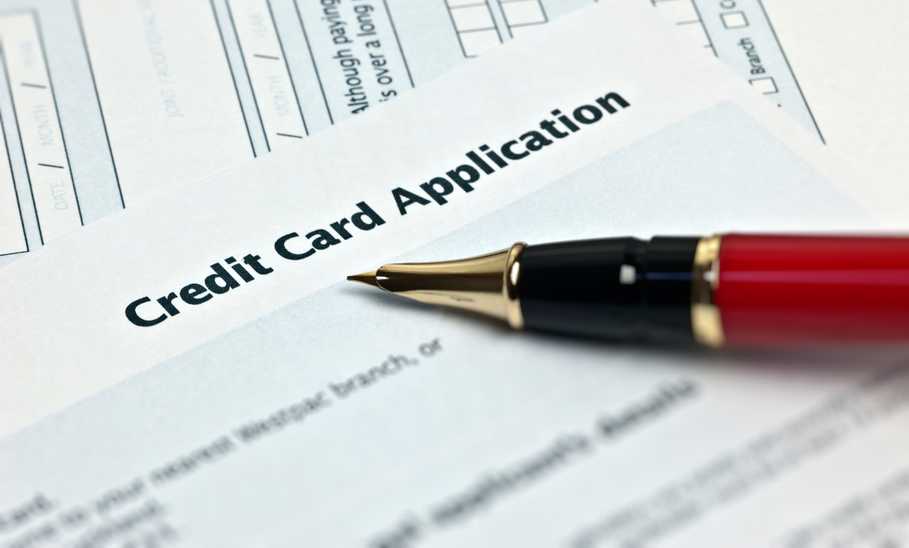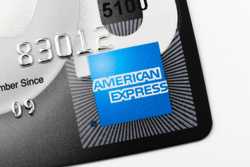Does Applying for a Credit Card Hurt Your Credit?


Our evaluations and opinions are not influenced by our advertising relationships, but we may earn a commission from our partners’ links. This content is created by TIME Stamped, under TIME’s direction and produced in accordance with TIME’s editorial guidelines and overseen by TIME’s editorial staff. Learn more about it.
Credit card bonuses and ongoing benefits these days are almost too difficult to resist. It’s possible to get literally thousands of dollars in value from a single credit card each year if you know what you’re doing. But lots of people are terrified of credit cards. They think that opening credit cards will ruin your credit—and they’re not completely wrong. Misusing credit cards can damage your credit. But using them properly can open all kinds of doors that those who shun credit cards miss out on.
One common argument against credit cards is that your credit score will fall when you open them. That’s actually true. When you open a credit card, your credit score will—without fail—drop a few points. But it’s only temporary, and your credit score will likely be higher than ever before you know it.

Let’s take a look at why your credit score drops after you hit that “apply” button.
When you apply for a new credit card, lenders will perform a “hard inquiry” on your credit score to help them determine whether you’re a good candidate for their product. Any time your credit experiences a hard inquiry, it will drop a few points. If you’re startled to find that your credit score is lower than you thought after applying for a credit card, this is why.
However, if it’s been a while since you opened that credit card and your credit score is still low, you’ll have to examine your credit card habits. Are your balances high? Have you missed payments? There are very simple steps you can take that will either give your credit score wings or tie a millstone around its neck. We’ll outline these steps shortly.
Your credit score is calculated based on five factors, some weightier than others. When you open a new credit card, two of those factors are immediately affected. Read on to find out what these are.
New credit accounts for 10% of your overall score. While opening a credit card is not inherently bad, lenders take a hard look at your streak of new credit before offering you some of their own. If your habits imply a frantic credit grab, they might view this as a signal that you’re struggling to pay your bills.
Length of credit history accounts for 15% of your overall score. The longer the average age of your credit accounts, the better. When you open a new credit card, your average account age decreases.
Therefore, 25% of your credit score takes a hit when you’re approved for a credit card. Fortunately, the effects won’t last very long and your score will bounce back within a couple months—if you use your credit card responsibly. In fact, as you keep your new credit card in good standing year after year, your average length of credit card accounts will improve—turning what was once an impairment to your credit score into a strength.
Your credit score will not only bounce back, it’ll improve. As long as you exhibit good credit habits, you can bolster the three remaining factors of your credit score:
Payment history accounts for 35% of your overall score. Making your payments on time is the single best thing you can do to maintain healthy credit. You don’t even have to pay your balances in full (though you should to avoid interest fees). As long as you keep your cards in good standing, you’ll ace this very important category. Opening a new credit card gives you the ability to exhibit a stellar payment history on an additional account.
Your credit utilization accounts for 30% of your overall score. It’s a snapshot of how much of your credit that you’re actually using. For example, if you’ve got three credit cards with a total credit line of $25,000 and you’ve currently got a $10,000 balance, your credit utilization is 40%.
For the optimum credit score, you should strive to keep your amounts owed below 30% of your available credit. Opening a new credit card will give you more available credit, which will make it easier to stay below that 30% threshold.
Interestingly, your credit utilization should be above 0%. Lenders aren’t impressed by the fact that you don’t use credit even though you’ve got it. They want to see you using your credit in a responsible way.
Credit mix accounts for 10% of your overall score. This examines the different types of credit you hold. As an example, if your only credit account is an auto loan, your credit score will like it when you open a credit card—because it’s different.
As mentioned above, recent hard credit pulls can be off-putting to a lender. If you’re anticipating an auto loan or mortgage in the near future, something for which you want to be absolutely certain your credit is above reproach, it’s wise to lay off the credit card applications for six months or so. It could mean the difference between favorable and offensive interest rates. It could even be the difference between an approval and denial—though it probably won’t be, unless you were previously hitting the apply button with regularity.
It’s important to be self-aware when applying for a credit card. You don’t want to apply for a credit card that’s out of your league and waste a hard credit inquiry on a certain denial.
Instead, research which credit cards are attainable with your current credit score. You can read our piece on the best credit cards in which we identify the credit scores necessary to achieve an approval with the most popular (and lucrative) cards.
Many of the best credit cards charge annual fees. If you can maximize their benefits, they can be worth exponentially more than you’ll pay for them each year.
If you’re looking for a card that you’ll keep for many years, try to determine two things:
That second point is important. “Product changing” is the act by which you can request that your current credit card be converted into another. For example, The $550 annual fee Chase Sapphire Reserve® is one of the best travel credit cards on the market. If you open the card and eventually decide that the annual fee is no longer worth paying, you can “product change” the card to one that’s in the same family, such as the $95 annual fee Chase Sapphire Preferred® Card or the $0 annual fee Chase Freedom Flex℠. This way, you won’t have to close your account, and your credit history will continue to strengthen.
If you’re just starting out in the credit card world, open a secured credit card. They’re designed to help you foster your credit score from nothing.
However, if you’re after other products, such as the best rewards credit cards, you’ll have the best chance of approval with a credit score of at least 700. This is the magic number of sorts to be eligible for pretty much whatever you want. No credit card approval is a guarantee, no matter how high your credit score, but a credit score of 700 will at least make you eligible in most cases.
American Express, Capital One, Chase, and Citi all have different and quite strict application and welcome-bonus rules when it comes to opening credit cards. For example, Chase will not approve you for a Chase Sapphire Preferred credit card if you:
Before you click the apply button, quickly google the application restrictions for whichever bank issues your desired credit card.
When you apply for a credit card, you’ll receive a hard credit inquiry. And when you’re approved, your average credit account age is immediately lowered. These are the things that cause your credit score to dip.
But if you use your credit responsibly, you’ll be able to increase your credit score beyond what it was before you applied. A new credit card account gives you the opportunity to further show streaks of good credit habits so you can be approved for other loans in the future.
Applying for many credit cards at once does hurt your credit score—but only temporarily. When you receive multiple hard credit pulls on your credit in a short period of time, it can appear as though you’re desperate.
Furthermore, your credit score will drop whether you’re approved or denied for that new credit card. It’s the hard inquiry itself that dings your score, not the denial.
There is no specific number of credit cards that you should have. More importantly, there’s no such thing as “too many” credit cards. As long as you’re able to use them responsibly, you could conceivably hold dozens of credit cards. Just make sure that you’re not paying unnecessary annual fees for credit cards you don’t use anymore.
To best improve your credit score, you should concentrate on two things above all else:
These two factors account for 65% of your credit score. As long as these are tended to, you don’t have to focus too much on the other factors (credit mix, new credit, and length of credit history) to maintain a respectable credit score.
If your credit is currently in the basement and you’re looking to improve your credit score, search for a “secured” credit card. Credit cards for bad credit often require collateral to be approved. You’ll deposit an amount of money to the card issuer, often between $300 and $5,000, and in return you’ll get a credit line for that same amount. Once you graduate to a regular credit card or cancel your secured card, you’ll get your deposit back. The U.S. Bank Cash+® Visa® Secured Card is one of the best credit cards for bad credit because of its generous rewards structure. For example, you’ll earn 5% back on the first $2,000 in combined purchases per quarter in categories you can choose (which include things like fast food, department stores, and cell phone providers).
The information presented here is created by TIME Stamped and overseen by TIME editorial staff. To learn more, see our About Us page.



